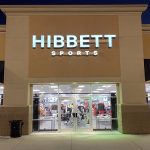Retailers expect solid but not stellar results for Black Friday and Cyber Monday. According to a recent BDO USA, LLP survey of 100 chief marketing officers at leading U.S. retailers, just 27 percent expect to see an increase in Black Friday sales, down from 38 percent in 2010. Similarly, only 24 percent project an increase in Cyber Monday sales, with the vast majority (74 percent) expecting flat sales. Overall, CMOs project a 1.6 percent increase in Black Friday sales (down from 3.8 percent in 2010) and 2.5 percent increase in Cyber Monday sales.
Lower projections for Black Friday and Cyber Monday are to be expected as intense competition in the sector has retailers planning big discounts earlier in the season. In fact, a vast majority of CMOs (78 percent) say they expect to see more discounts and promotions overall this holiday season compared to last year. This is up 21 percent from 2010 when 64 percent of retailers said they expected to see more discounting.
“Black Friday is not disappearing, but deal-fatigued shoppers have been there and done that,” said Ted Vaughan, partner in the Retail and Consumer Product Practice at BDO USA, LLP. “With new promotional strategies and earlier discounting, retailers are looking to create more spending triggers to get an edge and keep inventory moving throughout the season.”
These findings are from the most recent edition of the BDO Retail Compass Survey of CMOs, which examined the opinions of 100 chief marketing officers at leading retailers located throughout the country. The retailers in the study were among the largest in the country, including 12 percent of the top 100 based on annual sales revenue. The telephone survey was conducted in September and October of 2011.
Some of the major findings of the BDO Retail Compass Survey of CMOs include:
Retailers Adopt Omni-Channel Promotional Strategy. As consumers increasingly demand a seamless brand experience across all channels, retailers are moving toward an omni-channel promotional strategy for the 2011 holiday season. In fact, 42 percent of CMOs say they are equally focusing promotions and discounts online and in stores this year — a dramatic change from 2010 when 59 percent said they were focusing the majority of promotions and discounts just in stores. While free shipping remains a key differentiator for online, channel agnostic promotions will be more prominent this year.
Deepest Discounts for Consumer Electronics & Apparel. Similar to 2010, most CMOs (51 percent) expect retailers will offer the most discounts in the electronics category this year, followed by apparel (25 percent). Still home goods discounting appears to be making a comeback this year as the economy pushes consumers to buy and ask for more practical items as gifts. While only 8 percent expect home goods to see the most discounts, that expectation has doubled from 2010 (4 percent) and is trending back toward 2009 (14 percent). Although jewelry is typically a popular holiday gift, fewer CMOs this year (7 percent, vs. 14 percent in 2010) expect the category to see the most discounts, a likely reflection of higher precious metals costs.
Email Promotions Top Sales Generator, Social Media Jumps in Importance. Consumers are bombarded with marketing from all angles during the holidays. When asked what online promotional tactic will convert the most sales this season, CMOs are split between email promotions (28 percent), search engine marketing (26 percent) and the ever-popular free shipping (23 percent). Promotions via social media are seen as the top sales tool for another 18 percent of CMOs, up 80 percent from 2010 (10 percent). While social media has grown as an effective outlet for promotions, it's clear that retailers still rely on the action triggers that email promotions and free shipping offers provide.
The BDO Retail Compass Survey of CMOs is a national telephone survey conducted by Market Measurement, Inc., an independent market research consulting firm, whose executive interviewers spoke directly to chief marketing officers, using a telephone survey conducted within a scientifically-developed, pure random sample of the nation's retailers.















